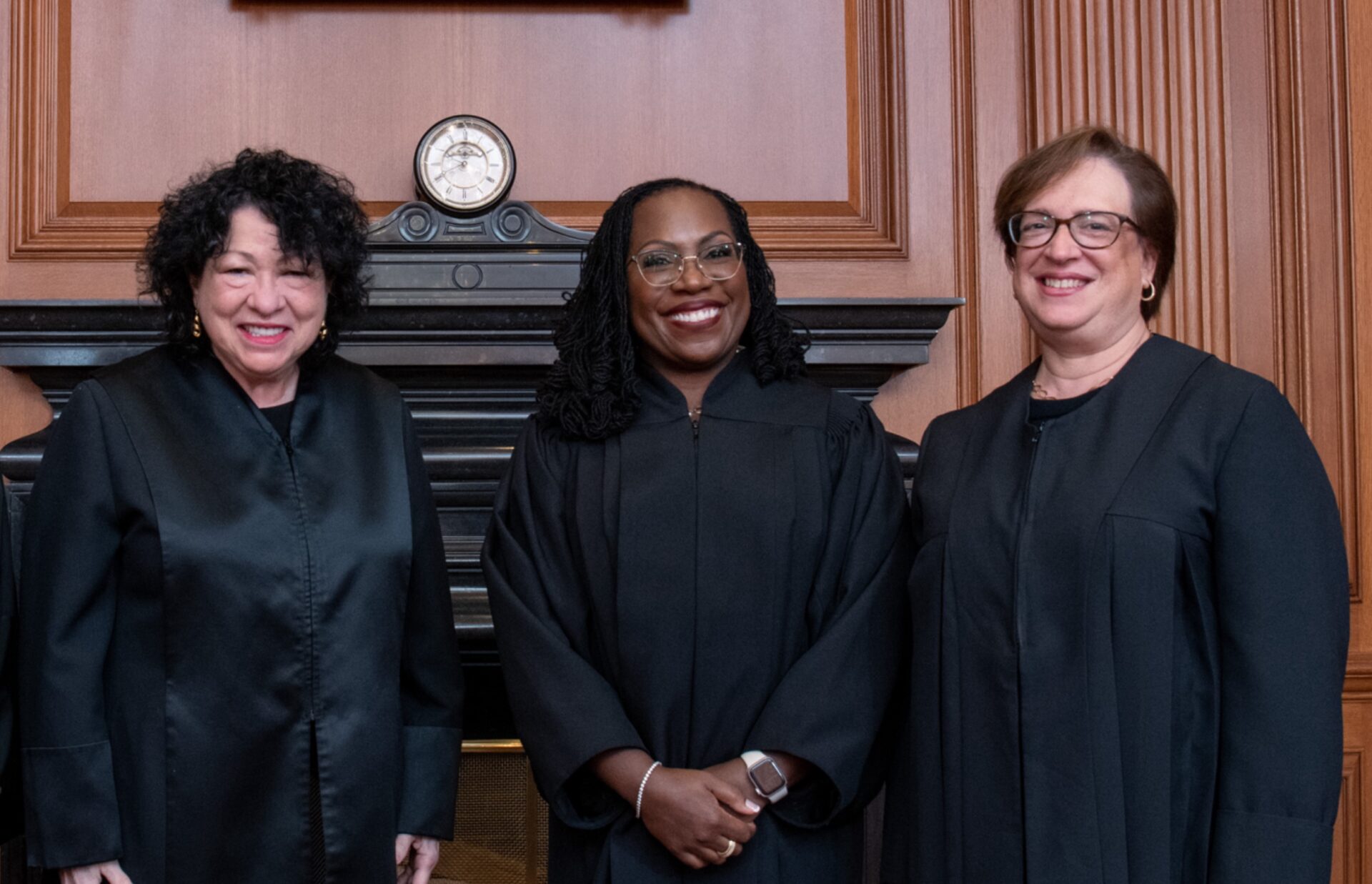
November 15, 2023
Justice Ketanji Brown Jackson and Liberal Colleagues Dissent From Court’s Solidarity Confinement Decision
Justice Ketanji Brown Jackson felt Johnson's civil rights were clearly violated.
The Supreme Court refused to hear the appeal of an Illinois inmate whose lawyers claim his rights were violated after he was kept in solitary confinement for three years.
Michael Johnson allegedly spent years in a windowless cell with poor ventilation. Lawyers say the cell was no bigger than a parking space that was often covered in human waste. On Nov. 13, Justice Ketanji Brown Jackson said an appeals court failed to consider the health risks Johnson faced and focused on minor factors that restricted his ability to leave his cell.
Jackson and Justices Sonia Sotomayor and Elena Kagan described the ruling as “an indisputable legal error” that she and her colleagues would have revised.
“This court has long held that the test for evaluating an Eighth Amendment challenge to a prisoner’s conditions of confinement involves determining whether prison officials acted with ‘deliberate indifference’ to a substantial risk to an inmate’s health or safety,” Jackson wrote.
In a lawsuit filed against Pontiac Correctional Center officials, Johnson claims he was unconstitutionally deprived of exercise when prisoners in solitary confinement are entitled to one hour of exercise out of the cell five days a week. The inmate, diagnosed as seriously mentally ill by the Illinois Department of Corrections, claims he was deprived of exercise time as punishment.
Johnson was only allowed out of his cell once a week for 10 minutes to shower and couldn’t clean his cell unless he purchased items from the commissary. He suffered from hallucinations, urinated and defecated on himself, picked at his skin, and smeared feces on his body. The prison claimed Johnson damaged prison property and that he assaulted staff members.
Jackson argued that mental illness was the cause of his behavior, and without the ability to exercise, Johnson’s “mental state deteriorated rapidly.” “For three years,” she wrote. “Johnson had no opportunity at all to stretch his limbs or breathe fresh air.”
However, Illinois Attorney General Kwame Raoul said because of “persistent misconduct,” Johnson was “on yard restrictions” from January 2014 to August 2016 but regularly met with prison doctors and mental health professionals. In August 2016, Johnson was transferred to a mental health unit. While Raoul told the justices that officials couldn’t act with indifference based on treatment decisions, Johnson’s lawyers argued the opposite.
“The deprivation was not imposed to ensure the safety and security of the exercise yard,” the legal team argued, “but rather to punish Mr. Johnson for engaging in misconduct that was born of mental illness and unrelated to exercise.”
Following the high court’s decision, Daniel Greenfield, an attorney representing Johnson, said he appreciated the justice’s fight but was still disappointed. “At the same time, we are saddened to live in an era where such immense suffering is acceptable to any federal judge, let alone the majority of a circuit panel.”